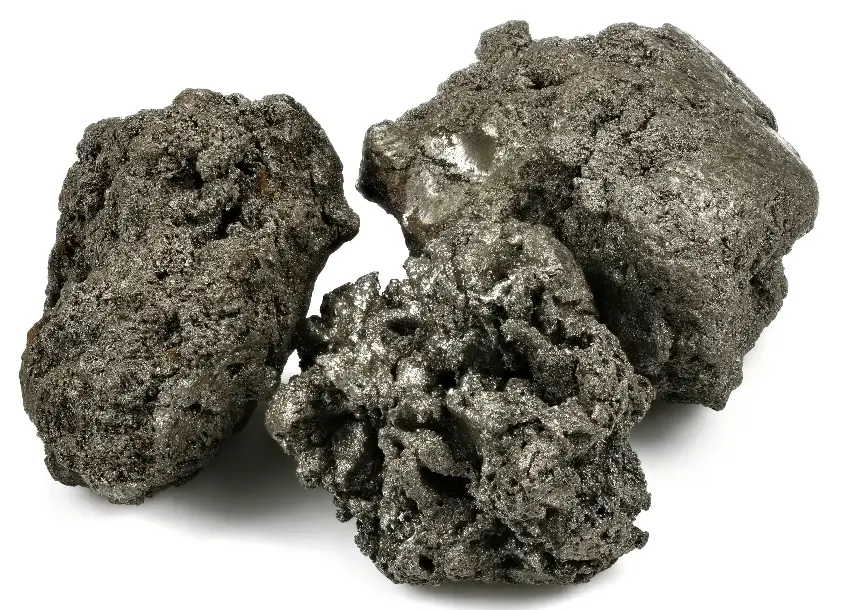Titanium is a silvery metal with a high strength-to-weight ratio, making it one of the most sought-after materials in the modern world. It is considered a precious metal because of its rarity and strength, but not all titanium is created equal.
Is Titanium a Precious Metal?
No, Titanium is not precious metal. Nine precious metals are iridium, rhenium, ruthenium, rhodium, palladium, osmium, platinum, silver, and gold. Titanium does not have high commodity price levels, such as precious metals.

Titanium has a variety of uses, ranging from aerospace applications to medical implants and tools. In the automotive industry, titanium is prized for its lightweight, which helps to increase fuel efficiency without compromising on performance or safety. It’s also used as a jewelry material thanks to its durability and attractive luster. Because of its popularity in many fields, titanium can be expensive – sometimes selling at prices above gold!
The most common type of titanium is Grade 5 (Ti6Al4V), a strong alloy composed of 6% aluminum and 4% vanadium combined with pure titanium. This alloy is robust and resistant to corrosion from water and saltwater environments, making it an ideal material for aerospace components and marine applications. Other grades are available, including Grades 2-4 for general industrial use and Grade 7 for particular medical applications.
Because titanium is a valuable material, it must be produced in precise facilities under strictly controlled conditions to ensure quality products with the highest possible performance levels. For example, some grades require melting temperatures as high as 3000°C! This makes titanium production costly but essential if you want top-tier results from your product.
Titanium Features
- Lightweight: Titanium is a light metal, making it useful in applications where weight reduction is essential.
- High strength: Titanium has high strength, making it useful in applications where strength is critical.
- Corrosion resistance: Titanium has good corrosion resistance, making it suitable for harsh environments.
- Biocompatibility: Titanium is biocompatible, making it suitable for medical implants and devices.
- Good heat resistance: Titanium has good heat resistance, making it useful in high-temperature applications.
- Low thermal expansion: Titanium has a low thermal expansion, making it useful in applications where dimensional stability is essential.
- Good electrical conductivity: Titanium has good electrical conductivity, making it useful in electrical and electronic applications.
- Versatility: Titanium can be used in various applications, including aerospace, medical implants, automotive, and chemical processing.
Today there are numerous ways that people can purchase titanium products like jewelry or tools. Depending on your needs, you can find everything from lower-cost machined par custom-casted casted items made specifically for your application. When buying online, it’s essential to ensure you get genuine titanium products – beware of too-good-to-be-true deals!
Titanium is known for its high strength, low weight, and good corrosion resistance. It is produced in large quantities worldwide, with most of its production in Asia.
China is the largest producer of titanium, with an estimated production of over 200,000 metric tons per year. Other significant producers of titanium include Russia, Japan, and the United States. In Europe, the United Kingdom, Germany, and France are essential titanium producers.
The production of titanium involves several stages, including mining the ore, reducing the ore to titanium dioxide, and then reducing the titanium dioxide to titanium metal using the Kroll process. The resulting titanium can be used in various aerospace, medical implants, automotive, and chemical processing applications.
You need to know as a trader that the demand for titanium continues to grow, driven by the need for high-strength, low-weight materials in a wide range of industries. The aerospace industry is one of the largest consumers of titanium, using it for airframes, engines, and other components due to its combination of strength and lightweight.
In conclusion, while not classified as a precious metal by definition (as opposed to gold or silver), due to its value and scarcity, it could be said that Titanium can indeed be considered “precious” in specific industries or contexts where it plays an integral role in manufacturing superior quality goods or services. As such, even though its price tag may seem hefty compared with other metals currently on the market today – considering all its unique properties – investing in Titanium might often prove highly beneficial in terms of increased productivity and cost savings over time.
If you like bills and coins, you should learn more about Gold and Silver IRAs. You can protect your retirement fund if you invest in IRA precious metals. Investors with gold IRAs can hold physical metals such as bullion or coins. Get a free pdf about Gold IRA.
GET GOLD IRA GUIDE
If you do not want to own them in physical form precious metals, you can trade gold, silver, and metals as CFD with the minimum commission:
























